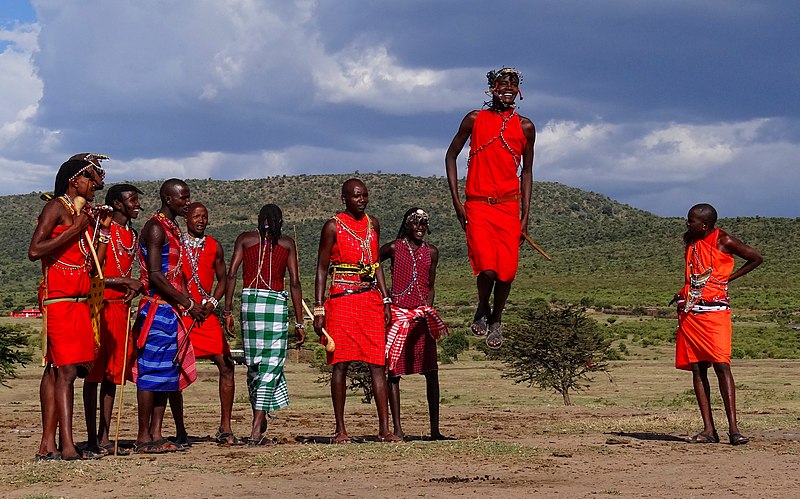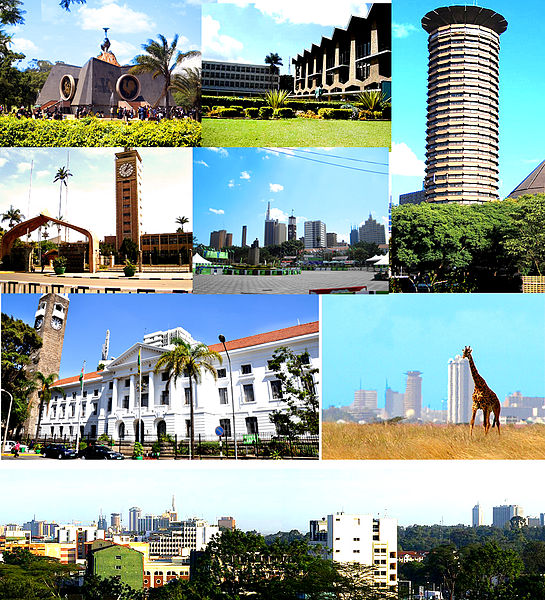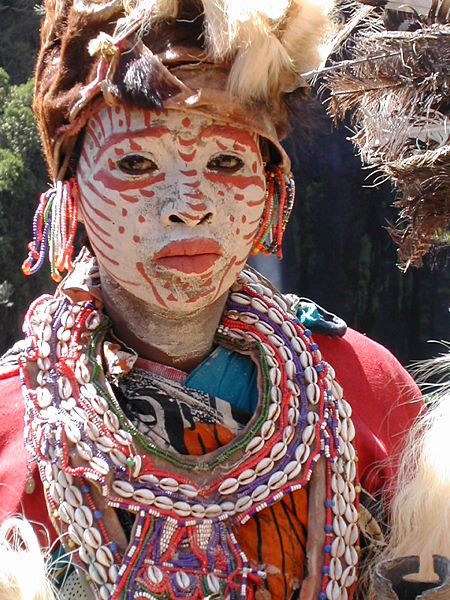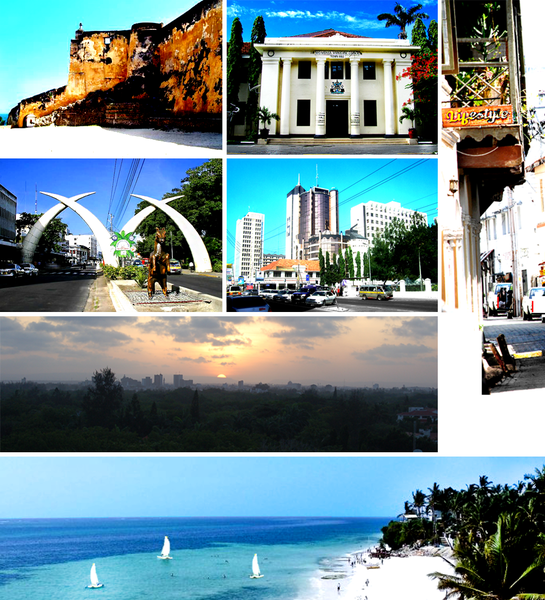Adopting from Kenya
Notice: As of July 14, 2014, all individuals and agencies facilitating international adoptions must be in compliance with the Intercountry Universal Accreditation Act.
Contents
Kenya Adoption Alert
There have been several adoption alerts for Kenya. To learn more please read the Kenya Adoption Alert page.
About Kenya
Founding president and liberation struggle icon Jomo KENYATTA led Kenya from independence in 1963 until his death in 1978, when President Daniel MOI took power in a constitutional succession. The country was a de facto one-party state from 1969 until 1982 when the ruling Kenya African National Union (KANU) made itself the sole legal party in Kenya. MOI acceded to internal and external pressure for political liberalization in late 1991. To learn more please read About Kenya.
Hague Convention Information
Kenya is party to the Hague Convention on Protection of Children and Co-operation in Respect of Intercountry Adoption (Hague Adoption Convention). Intercountry adoption processing in Hague countries is done in accordance with the requirements of the Convention; the U.S. implementing legislation, the Intercountry Adoption Act of 2000 (IAA); and the IAA’s implementing regulations, as well as the implementing legislation and regulations of Kenya. To learn more please read about Kenya and the Hague Convention.
Who Can Adopt
In addition to the U.S. requirements, prospective adoptive parents need to meet Kenya’s requirements to adopt a child. To learn more please read about Who Can Adopt from Kenya.
Who Can Be Adopted
Because Kenya is party to The Hague Adoption Convention, children from Kenya must meet the requirements of the Convention in order to be eligible for adoption. For more information please read about Who Can Be Adopted from Kenya.
How to Adopt
WARNING: Kenya is party to the Hague Adoption Convention. Do not adopt or obtain legal custody of a child in Kenya before a U.S. consular officer issues an “Article 5 Letter” in the case. Read on for more information.
Adoption Authority
The Adoption Committee
P.O. Box 46205-00100 Nairobi, Kenya Tel: 254-020-2228-411 ext 30040
NOTE: If any of the following occurred prior to April 1, 2008 (the date on which the Hague Adoption Convention entered into force with respect to the United States), the Hague Adoption Convention may not apply to your adoption: 1) you filed a Form I-600A identifying Kenya as the country where you intended to adopt; 2) you filed a Form I-600; or; 3) the adoption was completed. Under these circumstances, your adopted child’s visa application could continue to be processed in accordance with the immigration regulations for non-Convention adoptions. For more information, read about Transition Cases. Similarly, if the Hague Adoption Convention entered into force in Kenya after April 1, 2008, and you have an approved, unexpired Form I-600A or filed a Form I-600 before the entry into force date in Kenya, your adoption may be considered a transition case. Please contact adoptionusca@state.gov with the details of the case if this situation applies to you.
The Process
Because Kenya is party to the Hague Adoption Convention, adopting from Kenya must follow a specific process designed to meet the Convention’s requirements. A brief summary of the Convention adoption process is given below. You must complete these steps in the following order to meet all necessary legal requirements. Adoptions completed out of order may result in the child not being eligible for an immigrant visa to the United States.
- Choose a U.S. accredited or approved adoption service provider
- Apply to USCIS to be found eligible to adopt
- Be matched with a child by authorities in Kenya
- Apply to USCIS for the child to be found eligible for immigration to the United States and receive U.S. agreement to proceed with the adoption
- Adopt (or Obtain Legal Custody) of child in Kenya
- Obtain a U.S. immigrant visa for your child and bring your child home
To learn more about this process please read How to Adopt from Kenya.
Traveling Abroad
Applying for Your U.S. Passport
U.S. citizens are required by law to enter and depart the United States on a valid U.S. passport. Only the U.S. Department of State has the authority to grant, issue, or verify U.S. passports. Getting or renewing a passport is easy. To learn more please read about Traveling Abroad in Kenya.
After Adoption
Post-Adoption/Post-Placement Reporting Requirements
Adoptive parents must submit post adoption reports on the child’s welfare (with pictures) for five years, every three months for the first two years immediately following the adoption and then every six months for the last three years. Post-adoption reports can be submitted through your U.S. adoption service provider to the Kenya adoption society that made the adoptive parent and child placement.
We strongly urge you to comply with Kenya’s post-adoption requirements in a timely manner. Your adoption agency may be able to help you with this process. Your cooperation will contribute to that country’s history of positive experiences with U.S. citizen parents.
Post-Adoption Resources
Many adoptive parents find it important to find support after the adoption. There are many public and private nonprofit post-adoption services available for children and their families. There are also numerous adoptive family support groups and adoptee organizations active in the United States that provide a network of options for adoptees who seek out other adoptees from the same country of origin. Take advantage of all the resources available to your family, whether it is another adoptive family, a support group, an advocacy organization, or your religious or community services.
NOTE: Inclusion of non-U.S. Government links does not imply endorsement of contents.
Contact Information
U.S. Embassy in Kenya
Consular Section U.S. Embassy P.O. Box 606 Village Market 00621 Nairobi, Kenya Tel: +254 (0)20 363-6622 Fax: +254 (0)20 363-6410 Email: NairobiAdoptions@State.gov Internet: U.S. Embassy
The Adoption Committee P.O. Box 46205-00100 Nairobi, Kenya Tel: +254 (0)20 222-8411 ext 30040
Embassy of Kenya
Embassy of the Republic of Kenya 2249 R Street, N.W. Washington, D.C. 20008 Tel: (202) 387-6101 Fax: (202) 462-3829 Internet: Embassy of Kenya
Kenya also has consulates in: Los Angeles and New York City
Office of Children’s Issues
U.S. Department of State CA/OCS/CI - SA-17, 9th Floor Washington, DC 20522-1709 Tel: 1-888-407-4747 Email: AdoptionUSCA@state.gov Internet: U.S. Department of State
U.S. Citizenship and Immigration Services (USCIS)
For questions about immigration procedures: National Customer Service Center (NCSC) Tel: 1-800-375-5283 (TTY 1-800-767-1833) Internet: USCIS
For questions about filing a Form I-800A application or I-800 petition:
National Benefits Center
Tel: 1-877-424-8374 (toll free); 1-816-251-2770 (local)
Email: NBC.Adoptions@DHS.gov
SOURCE
Intercountry Adoption, Bureau of Consular Affairs. U.S. Department of State Country Information[1]










